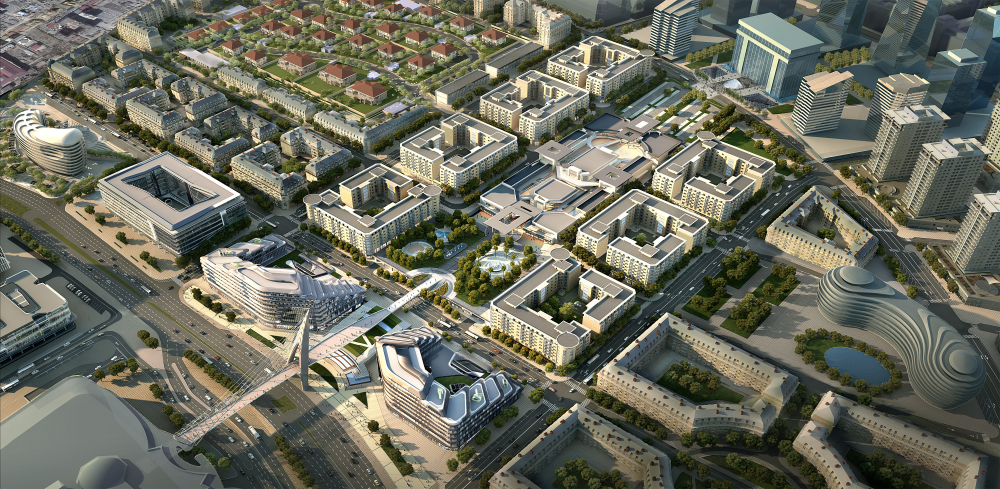Trendy kitchen #2
In the previous article , we discussed the most popular kitchen style for 2024. But what about kitch...

Projects that began in the late 20th century opened up new perspectives for the city residents. Scientists of the 21st century were against the development of the area known as the "Black City." The main problem here was the sequential placement of several oil refineries, leading to environmental pollution around the city.
A decision had to be made. Options for improvement or change through urban planning were discussed. Initially, the proposal was to gradually "brighten" the "Black City," separating its parts and building new structures. However, the plans of Baku's city planners went in a different direction.
The main development plan for the "Black City" was formulated within the framework of the Presidential Decree of Azerbaijan dated June 11, 2007, "On Measures to Improve the Environmental Situation in the Republic of Azerbaijan for 2006-2010," addressing the issue. Thus, the foundation was laid for the "Baku White City" project. This project holds great symbolic significance as it represents a new developed project in the territory historically known as the "Black City."
In the city of Baku, a modern, environmentally clean, beautiful residential complex has been created on lands polluted with oil and oil products. The "Baku White City" project became one of the major international urban plans. Azerbaijani specialists collaborated on its development with the renowned engineering consulting firm "Atkins," the office of the famous architect Norman Foster, and the American company "F+A Architects," known for its commercial projects.
The concept of the "Baku White City" was discussed with major city planners from Barcelona, London, and Paris before its development. Attention was given to optimal details corresponding to the center of Baku, and they were best reflected. The result was an impressive center for living called the "Baku White City."
Some buildings of the project received awards at international exhibitions in Dubai, Sydney, and Hong Kong. The entire project was also awarded in the category of "Future Project" in 2011, making it one of the prestigious projects participating in the annual international exhibition in Cannes.
The "Baku White City" with an area of 221 hectares is more than 11 times larger than the Inner City and is the largest development project in the Caucasus region. The project can provide living and trading space for 20,000 people, parking for 40,000 cars, and workplaces for 48,000 people. In the "Baku White City," there are already many modern residential complexes, such as "Park Hill Terrace, Knightsbridge, Nobel Tower, Park Çinar, Sahil Residence, Monparnas Residence, Rich Tower, Hayat Park, Renaissance, Ağ Saray, Altem Tower, Versal Palace, Raffle Tower, Toca Residence, Baku City Residence," and others.
Thanks to its environmental orientation, sustainability, integrity, and proximity to the Maiden Tower, just 4 km away, the "Baku White City" attracted the attention of both local and foreign investors. Tourists may also be interested here, thanks to the direct view of the sea from apartments with panoramic views.
The "White City of Baku," evolving every day, can be called the "White Pearl of the 21st Century" from the perspective from which it is viewed.
To be continued...
In the previous article , we discussed the most popular kitchen style for 2024. But what about kitch...
Designing our homes in a tasteful, visually pleasing, and, most importantly, comfortable manner is...
After obtaining a beautiful apartment, the first question that comes to mind is how to renovate your...
The streets, neighborhoods, malls, and hotels of Baku, which are being built in the center and nearb...